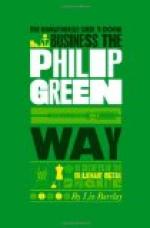|
This section contains 247 words (approx. 1 page at 300 words per page) |
Industrialists
Both the success-oriented novels of Horatio Alger and the utopian works of Edward Bellamy were best-sellers in late nineteenth-century America. The thing that might explain this paradox of Americans' wanting to read about how great their country was and how greatly it needed to improve is that Americans needed to know that they too could be like the wealthy tycoons of their age. They heard stories of going from rags to riches in this country so it gives them a sense of pride and hope to know that life can get better if they work hard for it and showing great perseverance in getting through the dark in order to get to the light.
The great industrialists and financiers, sometimes called "robber barons," both praised unfettered free enterprise and tried to eliminate competition. These apparently conflicting positions can be reconciled by thinking of the philanthropy that the wealthy tycoons engage in order to better those around them. They can also be thought as pioneers in the techniques of business that have raised the understanding of others in order to be wealthy faster.
|
This section contains 247 words (approx. 1 page at 300 words per page) |


